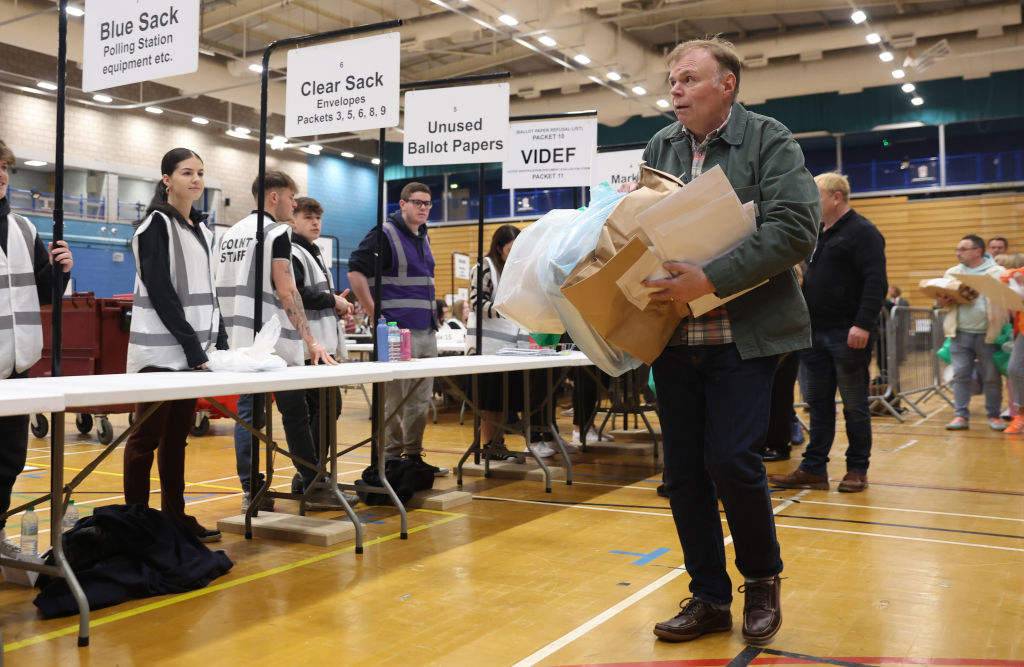Labour leader Sir Keir Starmer says his party is on track to win the next general election after the Tories were hammered in local polls across England. The story of these local elections however appear to be Tory disaster rather than Labour triumph. The BBC’s Projected National Share (PNS) of the vote – based on key wards – suggests that Labour would struggle to win a majority at a general election on the basis of last night’s performance.
The BBC’s PNS gives Labour 35 per cent, Conservatives on 26 per cent, the Liberal Democrats 20 per cent and others 19 per cent. It is the biggest Labour lead over the Conservatives at the local elections since 1997 – but it’s also the same vote share which the party won last year. Jeremy Corbyn secured 35 per cent in 2018, a year before his defeat, while Ed Miliband managed 38 per cent in 2012. The key difference this time is the terrible Tory vote share: the Conservatives have not been this low since 2013, when David Cameron got 25 per cent thanks to Ukip’s 23 per cent.
Election guru John Curtis told the BBC that the implied swing is necessary to assess the likelihood of a Labour victory in a general election. At between 4.5 to 5 points, this ‘might just be enough’ to give Keir Starmer’s party a majority in the House of Commons next year but it is by no means certain. Other headline results include:
- Labour are now the largest party in local government for the first time since 2002. They have taken control of Plymouth, Medway and Stoke-on-Trent, three of their top target councils. The party has also won overall control of Dover district council for the first time since 1995
- The Conservatives have lost control of 48 councils and 1,061 council seats
- Oliver Dowden’s Hertsmere council switches to ‘no overall control’ and loses 13 Tories in a particularly bad result for the party
- The Liberal Democrats have put on a very impressive net 405 councillors
- The Greens have won Mid Suffolk council, the first local authority on which they’ve ever had a majority
- Turnout looks to be only slightly down on 2019 and 2022, despite fears about the impact of voter ID
Keir Starmer’s party claim that, based on the aggregate vote so far, the party would have won Aldershot – Tory-held for more a century – alongside other Westminster constituencies including Hartlepool, Great Grimsby, Stevenage, Dudley South, West Bromwich East and Dudley South. Labour has also made necessary gains in the Teesside region and won the Middlesborough mayoralty on a swing of 20 per cent.
The early inquests have already begun from Tory MPs. John Redwood, the veteran Thatcherite, greeted the result by saying that ‘If the PM wants to win back lost Conservative voters he should try offering some Conservative policies.’ Both Jonathan Gullis in Stoke and Huw Merriman in East Sussex agreed that the past year had ‘certainly damaged’ the Tory brand while Charles Walker and Rehman Chishti took opposing views on the impact of housebuilding or lack thereof.
The figure for overall national turnout is not yet known but it is expected to be lower than last year when it was 33.6 per cent. That would put it among the lowest turnouts of the past ten years.







Comments